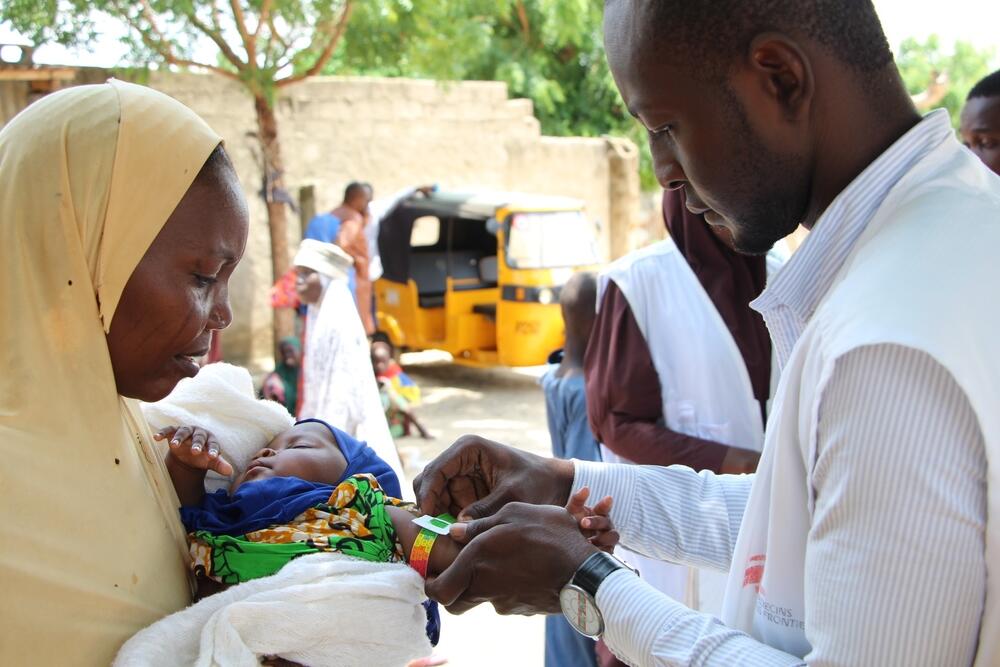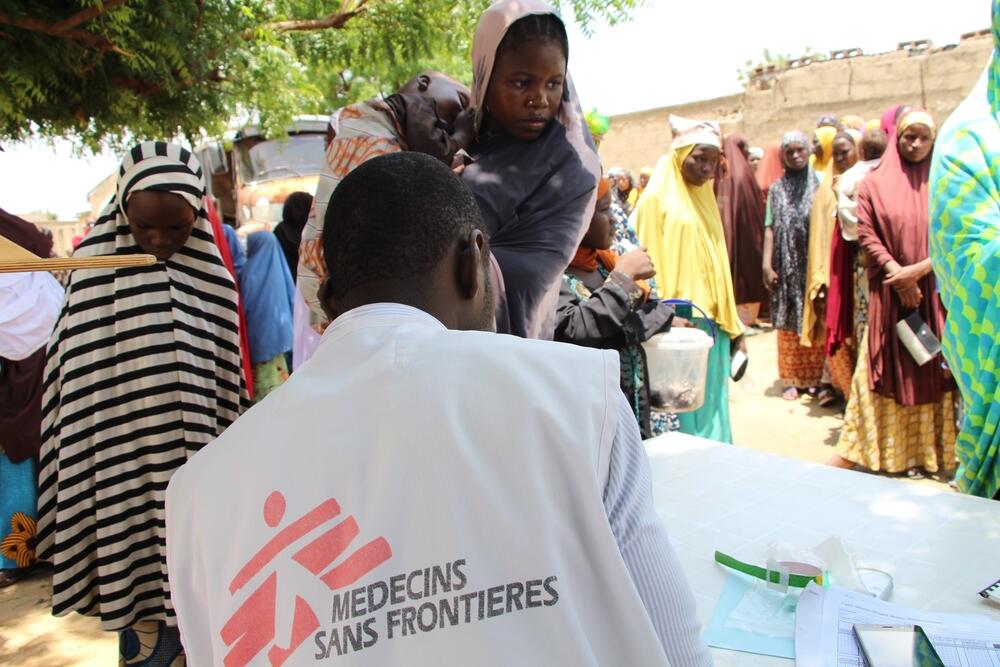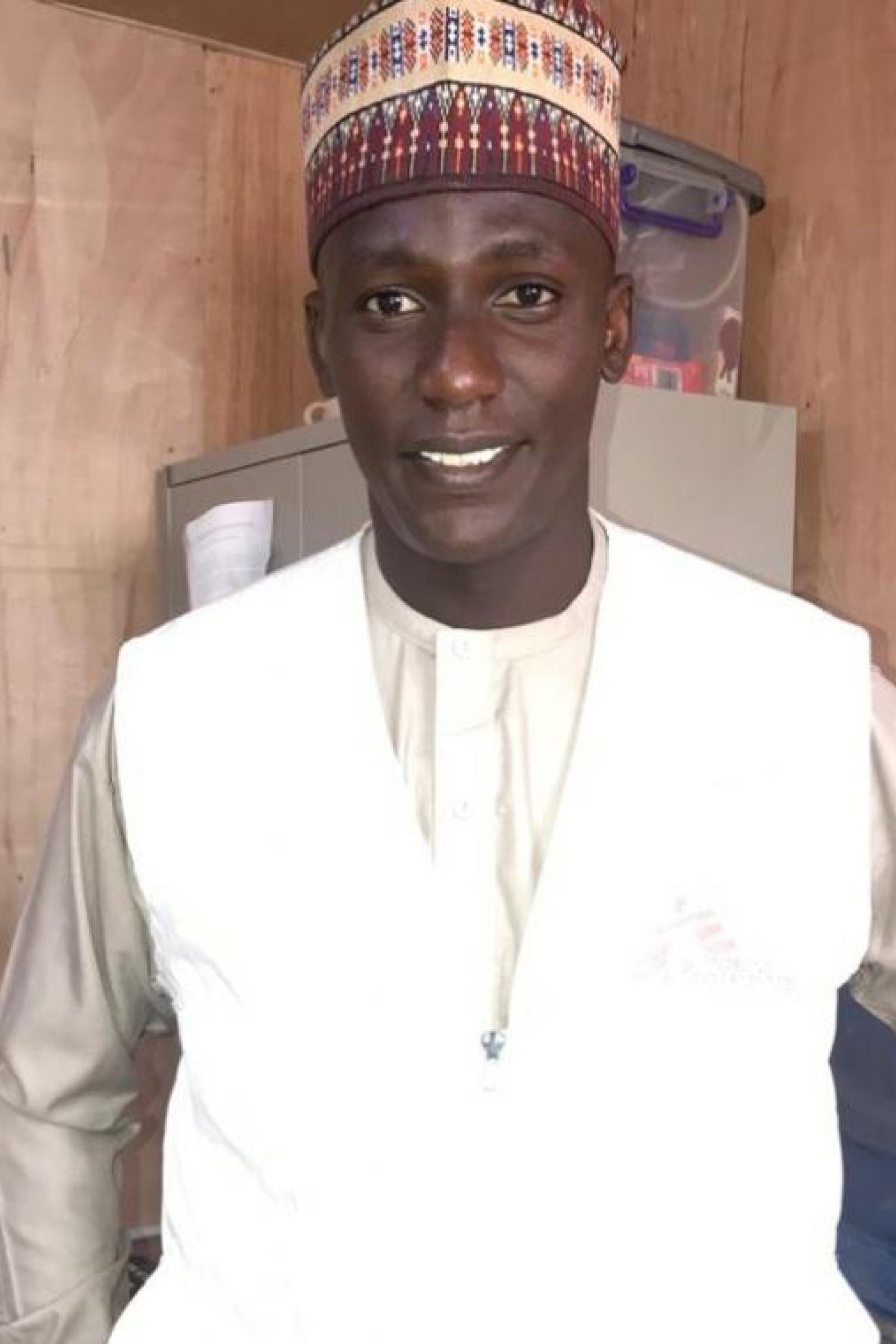Malnutrition in Nigeria: "We're making an impact"
From his hometown in Nigeria's crisis-hit Borno State, Dikko Abdullahi shares the powerful story of one young family, and the sense of purpose he finds working to help people displaced by insecurity.
Last week I had to travel back to my grandfather’s village to see my family.
On Sunday, as I was returning home, I came across a man near my house here in the city. He asked my name and said he had been looking for me.
He said that his child had been sick for about three weeks and he couldn’t get help. He was told that he should look for me, that I would know what to do.
Local knowledge
I’m the assistant field coordinator for Médecins Sans Frontières / Doctors Without Borders (MSF) in Maiduguri, the capital of Borno State, in northern Nigeria.
I was born here and help to coordinate MSF’s work in the area. We have a team of 233 staff, most of whom are locally hired. We know the local communities, we know the language they speak, we know the culture.
"When I came to the office on Monday morning, the man with his wife and child were the first people I found standing at the gate"
After finding out where he was staying, I told the man how he could get to the MSF hospital. He explained that he didn’t have money to pay for treatment, but I reassured him that it would be free.
When I came to the office on Monday morning, the man with his wife and child were the first people I found standing at the gate. I ushered them in.
After an assessment the child was admitted as an inpatient, severely malnourished.
The father explained that they had to leave their home because of the conflict, and that he’d just come to Maiduguri recently. He doesn’t have a job, nobody’s supporting them, and that meant it was hard to get enough food.
This is a common story.
Maiduguri
Since the start of the conflict in 2009, thousands of people have had to flee the violence, and many come to Maiduguri because the security situation is calmer here.
But, leaving behind their homes and livelihoods means many displaced people live in really tough conditions – some are without food, shelter or clean water.
There are now multiple displaced people’s camps around the city. We run a mobile clinic that visits five camps, providing primary health care, sexual and reproductive healthcare, mental health care and health promotion. We also have a malnutrition project, which is where I had recommended the man bring his child.
The malnutrition project offers both inpatient and outpatient treatment for children. We have around 70 beds for the most severe cases, and now, they’re all full.
The unseen impact
Lots of people in this area are subsistence farmers: they cultivate, they sell some part of the crops they produce, and they keep some to feed their families.
This time of year is always known as the "hunger gap" because it’s the time when the provisions people have saved from last year’s harvest start running out, but the new harvest isn’t ready yet.
However, the conflict makes things worse.
The violence means that many people have had to flee, leaving their farms to find safety. Lots of families have lost their breadwinners.
Even for people who have farmland close to Maiduguri, the security situation now doesn't allow people to cultivate as it’s not safe to travel outside of the city.
So, people are just using little portions of land around the city to cultivate crops, which is not enough to feed the entire state.

Help us prepare for the next emergency
Malnutrition
At the inpatient therapeutic feeding centre children stay with a caregiver (often the mother) who also receives food.
Malnutrition makes children more vulnerable to infections and disease, so they get whatever medical care they need, plus special therapeutic foods to help them gain weight.
"When I see people who have been in anguish getting medical help, it makes them smile, and honestly, I feel like I'm being given the whole world"
When they’re well enough to leave, typically we register them in the ambulatory programme so they can continue to receive therapeutic foods – while other organisations do food distributions, these are focussed only on children aged two years and below. However, some of our patients are discharged fully cured.
"How are you feeling?"
My role isn’t medical – I’m part of the management team, with a particular responsibility for security monitoring.
But I still go into the wards every day that I’m working at the hospital. I always go around the beds to say good morning, how are you doing, how are you feeling?
Just this morning I went to visit the children on the malnutrition ward and I saw the man from last Sunday and his family.
The child is about nine months old, and after two or three days at the feeding centre is already improving. I could see the joy on the parents’ faces.
This is the most rewarding part of my job: the smiles I see on the faces of our patients. I derive a lot of pleasure and satisfaction from knowing we are making an impact.
The story of this man and his family is the most recent one, but there are so many others. When I’m travelling around the city, people come to greet me, expressing this love. Sometimes I don't even recognise them. They tell me “we came to your facility, to the MSF facility before, my child was treated there, he’s fine now”.
I used to be a radio producer here, which paid better, but I have passion for what I'm doing now. It’s not the money that matters but what goes down into my soul. When I see people who have been in anguish getting medical help, it makes them smile, and honestly, I feel like I'm being given the whole world.
MSF and malnutrition
When children suffer from acute malnutrition, their immune systems are so impaired that the risk of death is greatly increased. Worldwide, nine children die every minute because their diet lacks essential nutrients.
According to the World Health Organisation (WHO), malnutrition is the single greatest threat to the world’s public health, with 178 million malnourished children across the globe.



